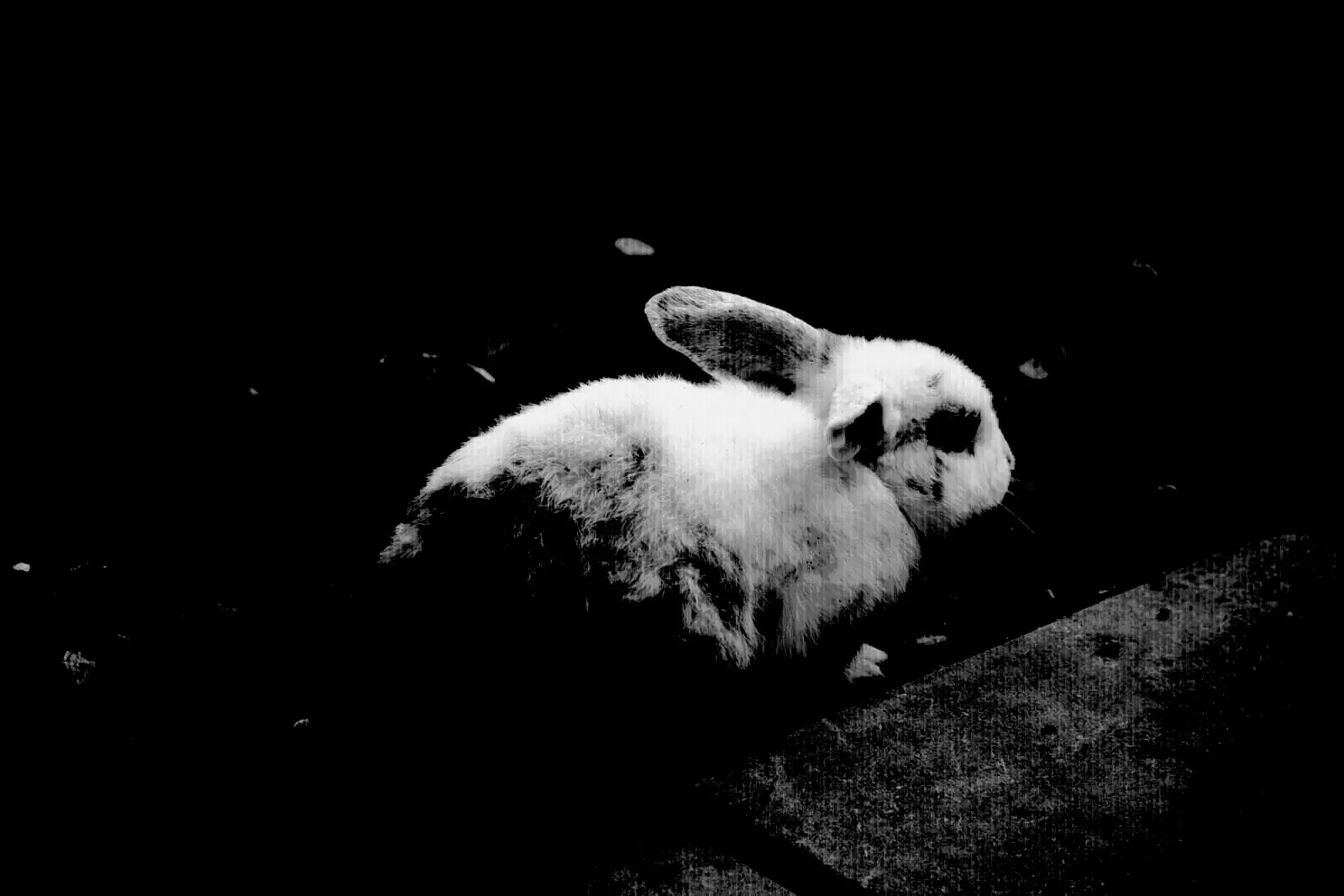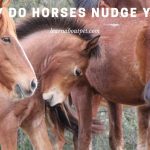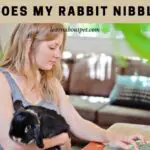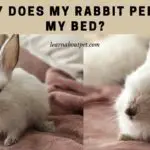If you are having a smell problem due to your pet ferrets, it may get to a point where you start considering using a product like Marshall Goodbye Odor. But before doing so, you will probably want to know whether Goodbye Odor is safe for ferrets. Read on, for an answer.
Is Goodbye Odor safe for ferrets? Yes, Goodbye Odor, which comes from the White Button mushrooms (and is an enzymes-amino acids blend) can be quite safe for pets like ferrets.
The most important thing is to ensure that you use Goodbye Odor according to the maker’s guidelines.
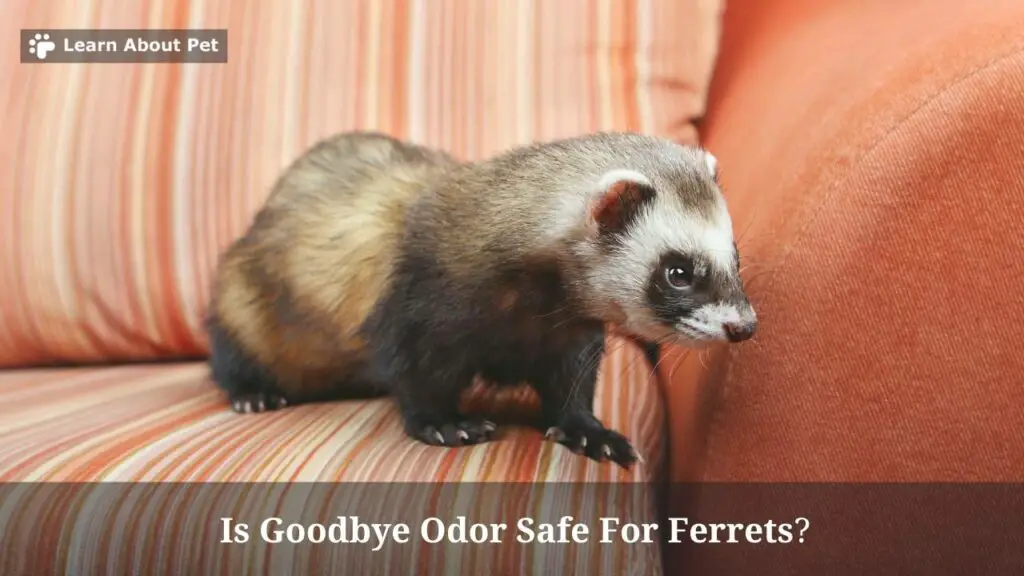
Of course, if you are very uncomfortable with the idea of using Goodbye Odor, there are other measures you employ to minimize the smell from your ferret.
Cleaning the ferret’s cage and beddings frequently can be helpful. So can a measure like that of ensuring you don’t bathe the ferret too often or adopting raw feeding.
If you prefer a chemical solution to the problem though, Goodbye Odor may come in handy.
What Is Goodbye Odor?
Goodbye Odor – whose full name is Marshall Pet Products Goodbye Odor – is a deodorizing product. You simply add it to a ferret’s water, and it helps in ensuring that the ferret doesn’t stink from within.
So there are three key things to know about Marshall Goodbye Odor for Ferrets.
Firstly, you need to know that the Marshall Pet Products Goodbye Odor For Ferrets is a deodorizing product. It is meant to combat ferret odor, which can be overwhelming at times.
Secondly, you need to know that the Marshall Goodbye Odor is a product that you add to a ferret’s water. Adding it to food may be viable in some cases too.
And thirdly, you need to know that the Marshall Goodbye Odor is a product that combats the odors from within. So it does something within the ferret’s body, to minimize the foul odors at that level.
Is Goodbye Odor Safe For Ferrets?
Goodbye Odor can be reasonably safe for ferrets.
There are people who use Goodbye Odor on their ferrets regularly, and the ferrets seem to suffer no harm. This shows that Goodbye Odor can be reasonably safe.
Moreover, there seems to be nothing that is patently toxic to ferrets in Goodbye Odor. You may start by asking yourself, what chemicals or what smells are toxic to ferrets?
Then check whether any of them is in Goodbye Odor. To the extent that Goodbye Odor doesn’t seem to have any of them, it can be said to be safe.
Looking at Goodbye Odor ingredients list, we don’t find anything that is too worrisome.
And its mechanism for working, while drastic (it entails neutralizing blood urea), is one that still doesn’t raise too much alarm, safe-wise.
It also helps that this is a ‘natural’ product, which comes from White Button mushrooms.
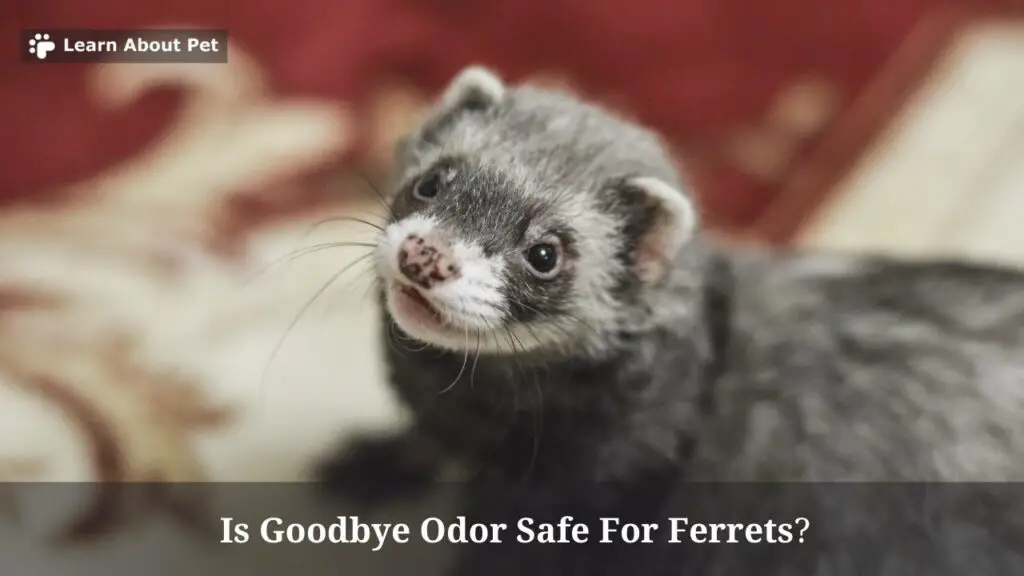
Does Goodbye Odor For Ferrets Work?
Besides the concern on Goodbye Odor safety, there is also one on its efficacy.
So, does GoodBye ferret smell work? The answer is largely yes. So long as you can get the ferrets to drink the water with Goodbye Odor, they will tend to stink less.
People who have used Goodbye Odor say it works. And its mechanism of working is one that makes sense. So we can conclude that Goodbye Odor for ferrets works – at least to some appreciable degree.
How Does Goodbye Odor For Ferrets Work?
The working mechanism for Goodbye Odor is quite simple. What it does is neutralize the urea in the ferret’s blood. This it does through its enzymes-amino acid blend.
Once blood urea is neutralized, the ferret tends to stink less.
What Are The Alternatives To Using Goodbye Odor For Ferrets?
One alternative is that of simply keeping the ferret cage clean. Most times, the worst stink doesn’t come from the ferret, but from its cage – especially its beddings.
So if you take cage cleanliness more seriously, there may be less smell.
At this point, one may ask, can I put anything in my ferrets cage to make it smell better? And the answer is that there are some products you can try, though nothing beats basic proper hygiene.
Another method is that of desisting from bathing the ferret too often. Ironically, when you bathe a ferret too often, it stinks more!
There is also the option of descenting the ferret. You may start by asking, can you de stink a ferret? In other words, can you keep a ferret from smelling through descenting?
The answer is ‘yes’, though there are those who may have concerns about the humaneness of it. And that leads to a question: is descenting a ferret cruel? Opinion on this is divided, with some experts in support of it, even as others oppose it.
Nonetheless, having the scent glands removed can go a long way in minimizing the smell. But by itself, it is not a panacea. You need to combine it with proper hygiene.
In a bid to minimize ferret odors, you can also try raw feeding.
Final Verdict – Is Goodbye Odor Safe For Ferrets
Goodbye Odor is reasonably safe for ferrets. Most of the ferrets that use Goodbye Odor seem to suffer no harm. It is therefore safe on that account.
In any event, Goodbye Odor is based on a natural product (White Button mushroom) extract. This makes it a natural rather than synthetic product.
You only need to use Goodbye Odor as per the manufacturer’s instructions, to minimize safety issues.
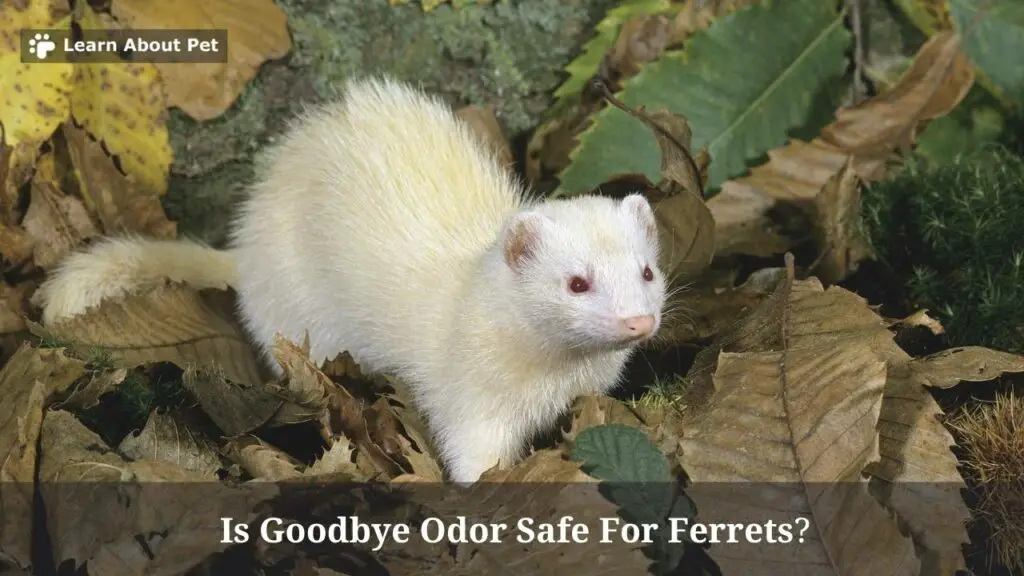
Goodbye Odor works by neutralizing urea in the ferret’s bloodstream, to minimize smell.
If you are uncomfortable with products like Goodbye Odor, you can use practical measures such as maintaining top notch cage hygiene and desisting from bathing the ferret too often.
There are also those who say that raw feeding may be helpful in minimizing ferret odors.
As a pet lover, make sure to learn about pet more and give your pet ferret a good and comfortable life!

Welcome to Learn About Pet. My name is Rajkumar Ravichandran and I love all pets, travel, and amazing food. I write about my passion and personal experience caring for multiple pets in this blog! ❤️
Post Disclaimer
DISCLAIMER: THIS BLOG OR WEBSITE, "Learn About Pet", DOES NOT PROVIDE YOU WITH MEDICAL ADVICE AND IS NOT A SUBSTITUTE FOR MEDICAL ADVICE. ALWAYS GET IN TOUCH WITH YOUR PERSONAL VETERINARIAN AND USE INFORMATION HERE AS GENERAL ADVICE.
The information, including but not limited to, text, graphics, images and other material contained on this website are for informational purposes only. No material on this site is intended to be a substitute for professional veterinary advice, food recommendation, diagnosis, or treatment. Always seek the advice of your veterinarian or other qualified health care provider with any questions you may have regarding a medical condition or for pet food related questions.

